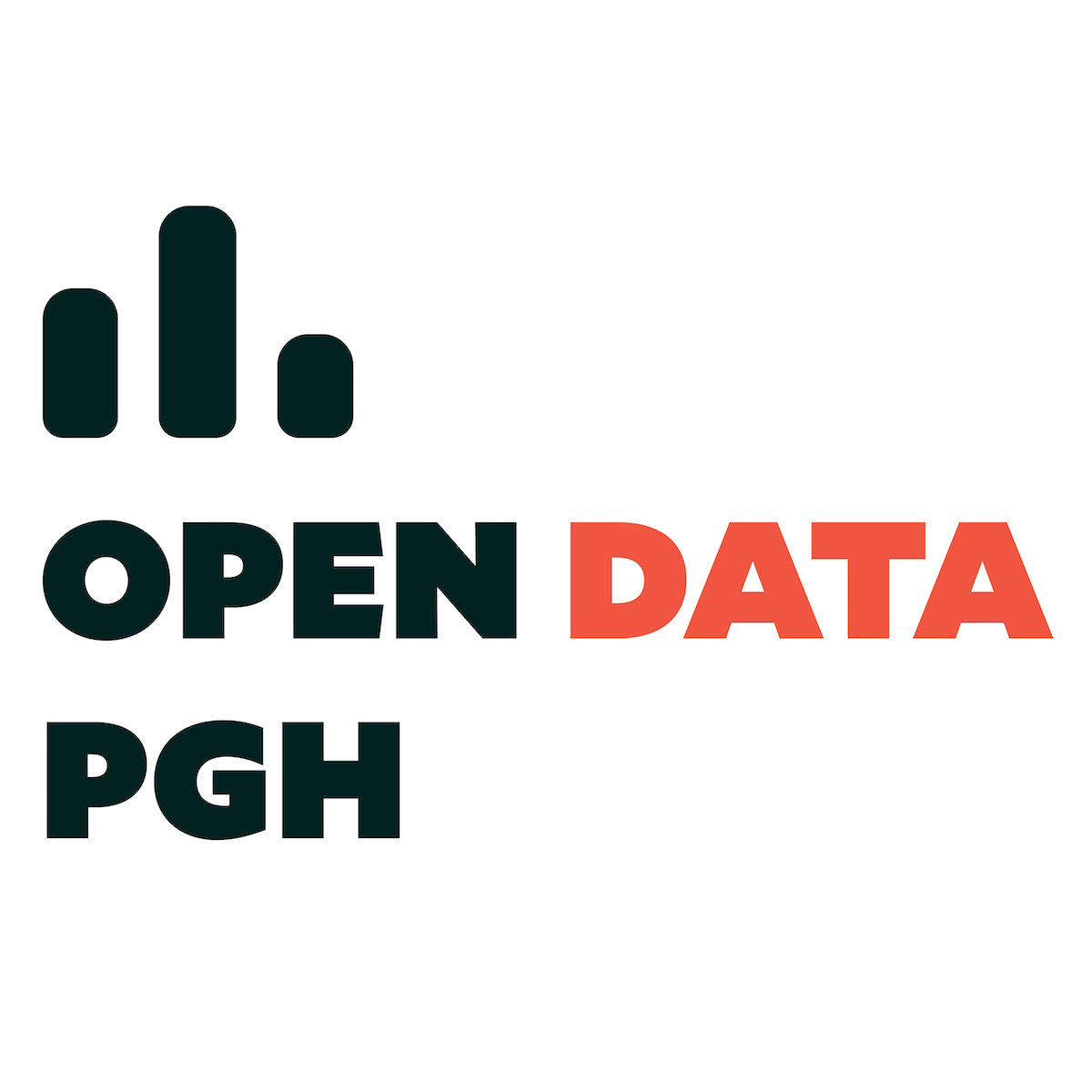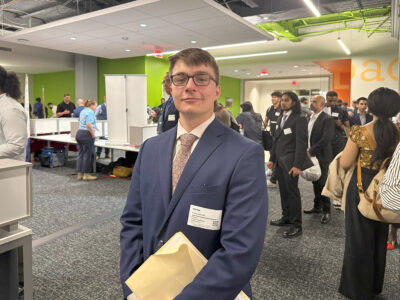Western Pennsylvania Regional Data Center (WPRDC) has two interns this summer who are both studying — get this — not computer science or public policy, but English.
That little fact seemed to be a nice fit with Open Data PGH’s goal of introducing non-technologists to civic data, so we chatted with them after a recent installment of the open data management organization-slash-community convener’s Data 101 workshop to learn more about 1.) why they took on this work for the summer, and 2.) what they’ve learned (so far).
Hannah Nathanson, 21, is an English writing major at the University of Pittsburgh. As part of her internship, she’s working with the WPRDC on revising its financial sustainability plan, and on a toolkit for its Data 101 series. She’s a tutor at Pitt’s Writing Center, an editor of Sampsonia Way magazine and writes fiction and poetry.
Alexa Marzina, 21, is also an English writing major at Pitt. She writes posts for the WPRDC blog, and is working with Nathanson on the Data 101 project to collect stories about data users. She’s a copy editor for the Pitt News and is pursuing a certificate in American Sign Language.
###
Open Data PGH: What made you want to pursue this internship? Do you have a background in data or programming?
Marzina: In my sophomore year, I took a class called Advanced Composing Digital Media with Matt Lavin, one of my favorite professors. I relearned HTML from the childhood Neopets knowledge I had. That’s where I started learning Python, and learned that you can take data and visualize it and make it useful to people. [Lavin] recommended this internship to me. I thought I’d make a chart or two; I never really considered the story aspect of the data. These numbers and these figures mean something.
I’m leaning toward journalism, and I’m learning more about data journalism and how number impact communities and what it all means.
Nathanson: I wanted to find a position where I could help communicate information to the right audience. It’s interesting to me how writing and data go together with how a team communicates, a lot of people think the humanities and technical-related stuff are on two different ends of the spectrum but it’s really not true. Big-picture thinking and detail-oriented thinking go hand-in-hand.
I think it's so important that they're educating people more about data, and that even people not in data fields can use data to do things that matter to them.
Have you been surprised by something you’ve learned in the internship so far?
Marzina: I’ve been surprised at how flexible it has been so far. [WPRDC Project Director Bob Gradeck] has been really great about letting us take things we’re interested in and focus on them. It’s helping me strengthen the skills I want to work on like writing blog posts and telling people’s stories.
Nathanson: I’m sort of more behind the scenes, helping Bob revise and expand financial and non-financial goals, that’s a big part of what I’m doing. It’s definitely provided me with experience with persuasive writing that’s informative.
What’s a project you’re working on that you particularly enjoy?
Marzina: A big thing we’re working on together is capturing data stories of our data users from the Data 101 classes, talking to people and getting their stories. It’s been so interesting to talk to all the people from the classes we’ve helped. I’m excited to see the amalgamation of all their stories and what it tells us about the data center and what it tells us about the surrounding area.
Nathanson: I’m excited to see when we bring all our notes together [on that project] what we find. We’ve been talking about finding ideas for how we can connect with more people in the classes, so to see the similarities in people’s responses and their feedback will be really helpful for us as well. We want to provide background on all the data we have give it context.
What do you think your takeaway from this internship will be?
Marzina: I would like more people to know the data center is there for them to use. I think it’s so important that they’re educating people more about data, and that even people not in data fields can use data to do things that matter to them.
Get Pittsburgh stories in your inbox weeklyBefore you go...
Please consider supporting Technical.ly to keep our independent journalism strong. Unlike most business-focused media outlets, we don’t have a paywall. Instead, we count on your personal and organizational support.
Join our growing Slack community
Join 5,000 tech professionals and entrepreneurs in our community Slack today!





